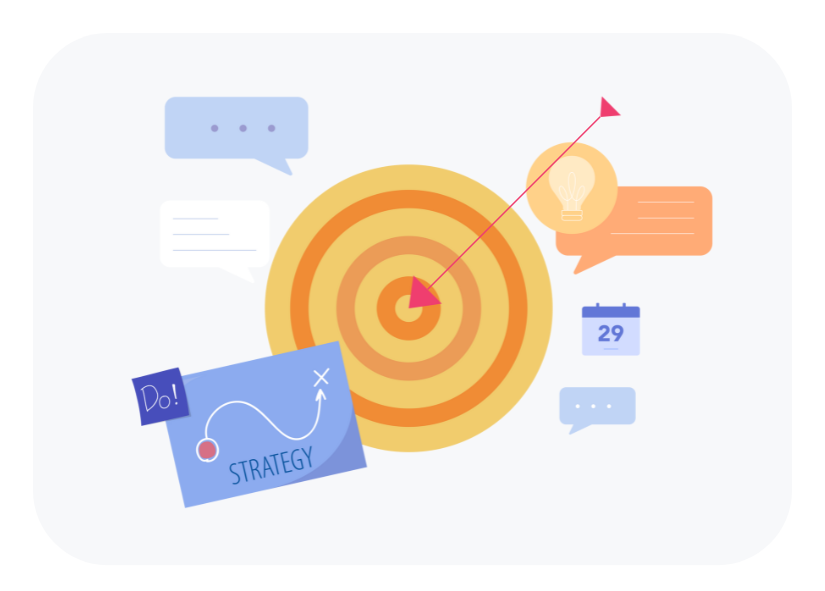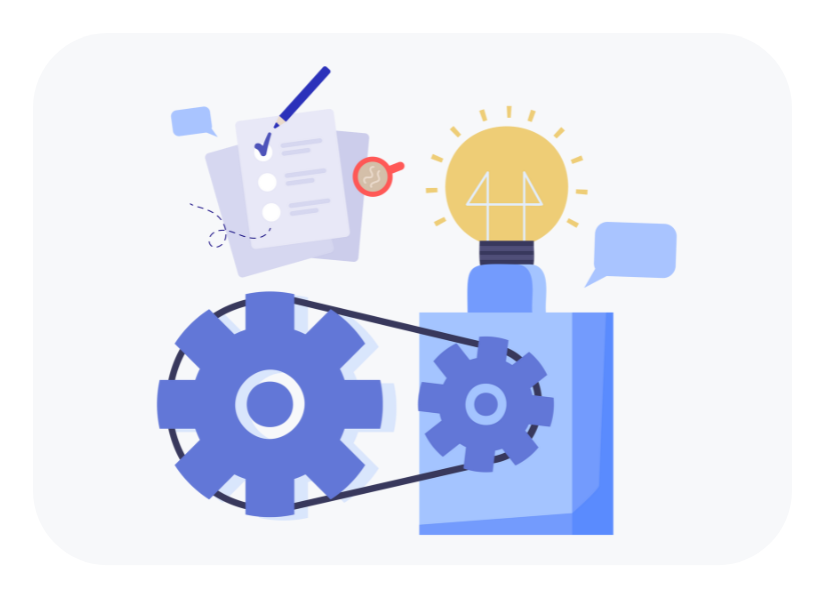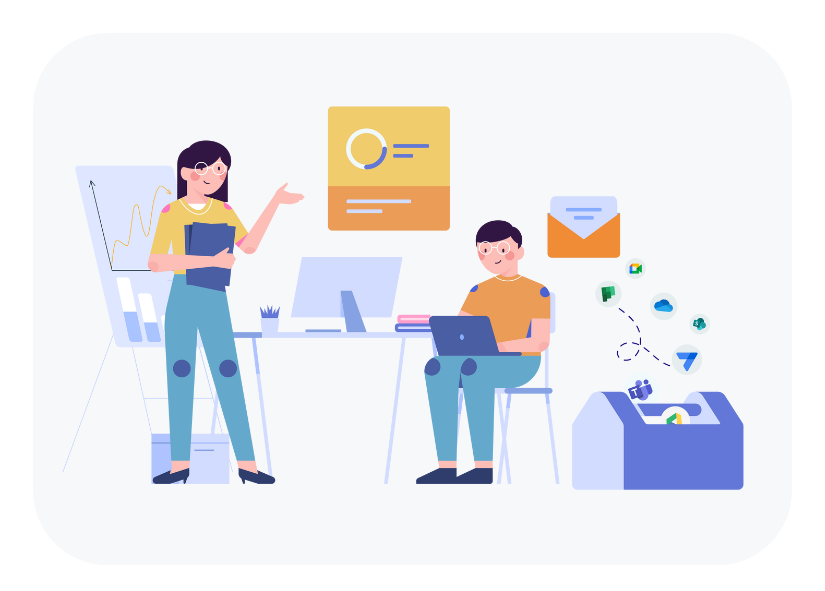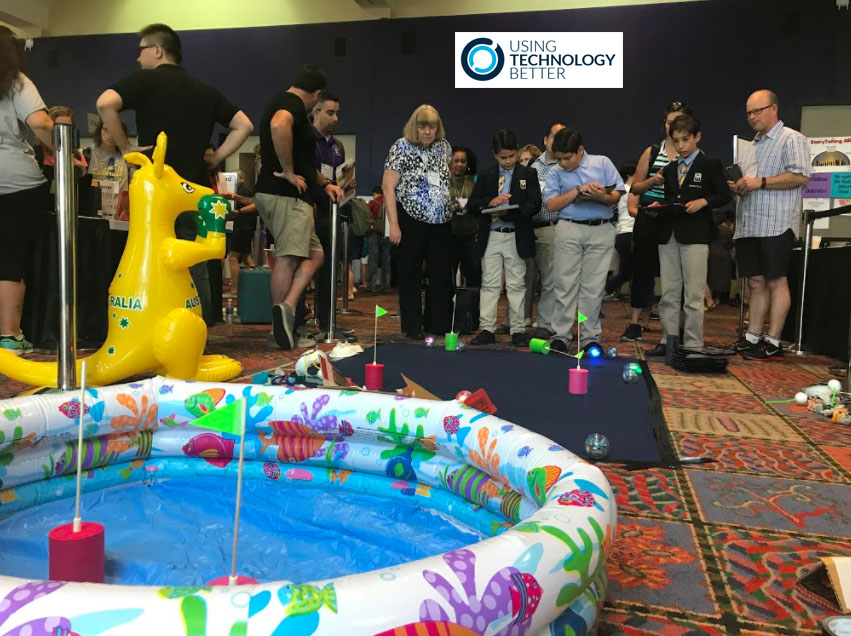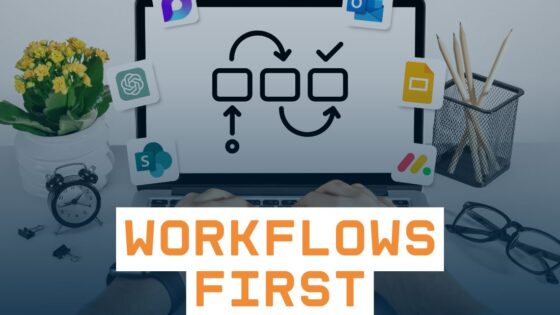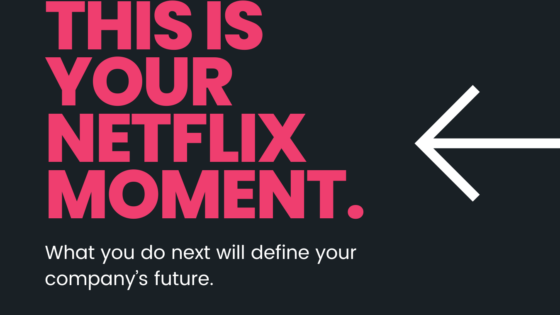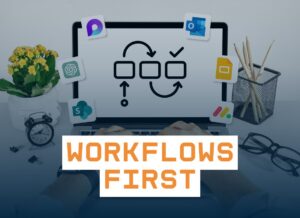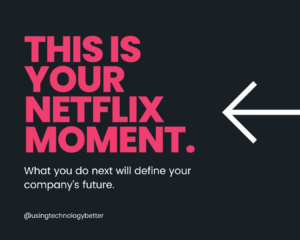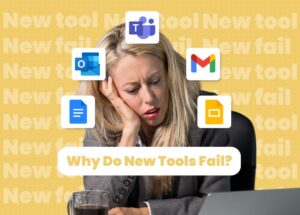This week we facilitated a Playground session at the ISTE conference in San Antonio, Texas. It’s always great to meet teachers and educators who are as passionate and inspired by the learning opportunities we have with today’s modern tools.
You can see some of our session in the video below.
The ‘Sphero Aquatic Cup’
In our Sphero Aquatic cup, we purposefully designed a challenge that involved two different aspects of modern literacies;
- Design thinking challenges with hands on materials
- Coding with drag and drop and Java Script
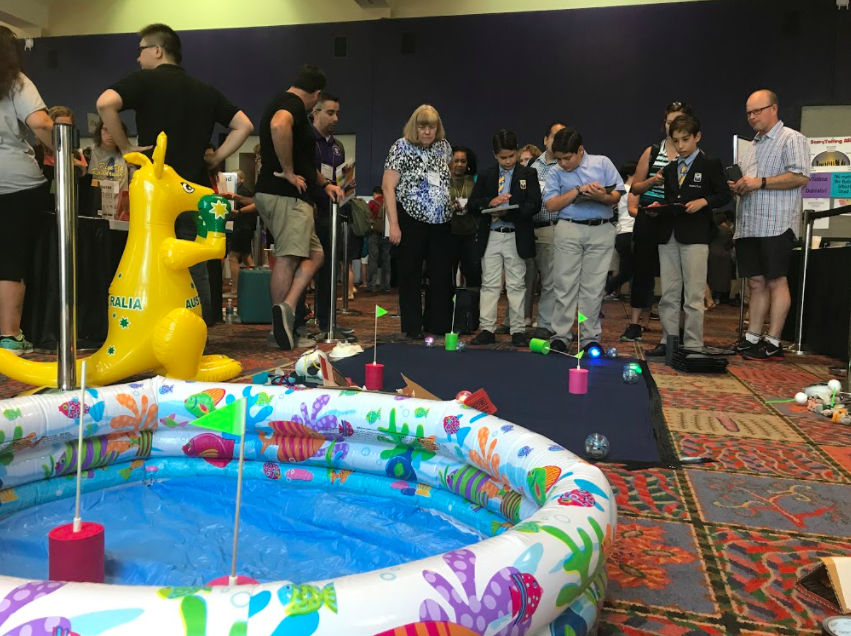
Our main objectives was to show teachers that they combine these aspects together in one larger, STEM challenge that would require teams to collaborate on multiple levels.
Too often we see teachers using robotics or coding activities in isolation. However, there is enormous potential to extend your activities to include a range of skills.
[bctt tweet=”Have you thought of combining hands on making projects with digital coding in the classroom? See how how here.” username=”markherringnz”]
The Stem Challenge
This challenge, firstly, created the scenario of a boat rescue situation. There were people who needed saving on the other side of the ‘lake’ and teams were challenged to build a self automated craft that would travel across land, into the lake and complete the ‘rescue’ on the other side.
The link to a real life scenario was framed in a video showing rushing water and the dangers involved in a rescue, hence the need for a robotic rescue.
Here is the video we used to set the scene – You could use it with your students, or have them create their own.
Hands on Design Thinking
To complete the challenge, we provided craft materials such as cardboard, paper plates, tape, fluffy sticks and some polystyrene balls.
The designs of the craft had to take into account the level of friction with the floor, the structural ‘robustness’ and how they would safely provide a space for the rescued person to sit or stand.
Here are a couple of our designs
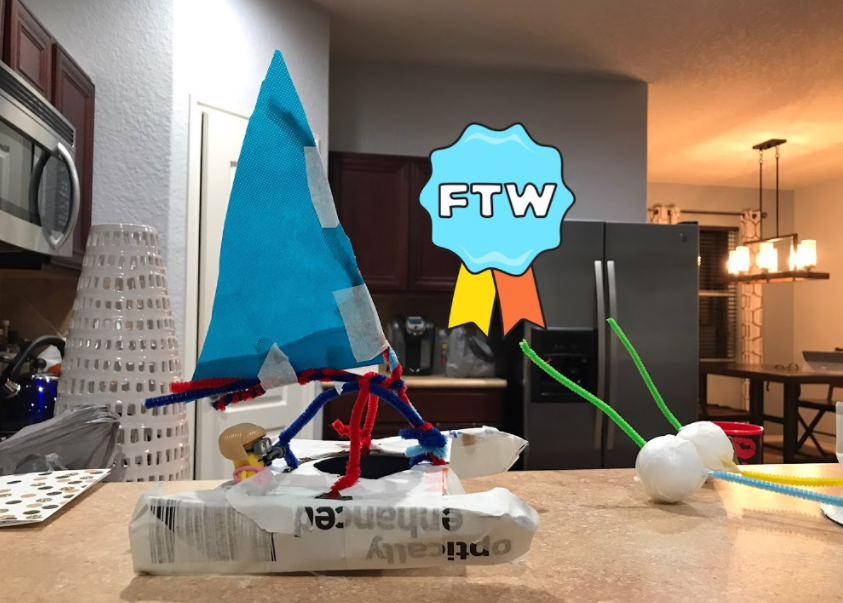
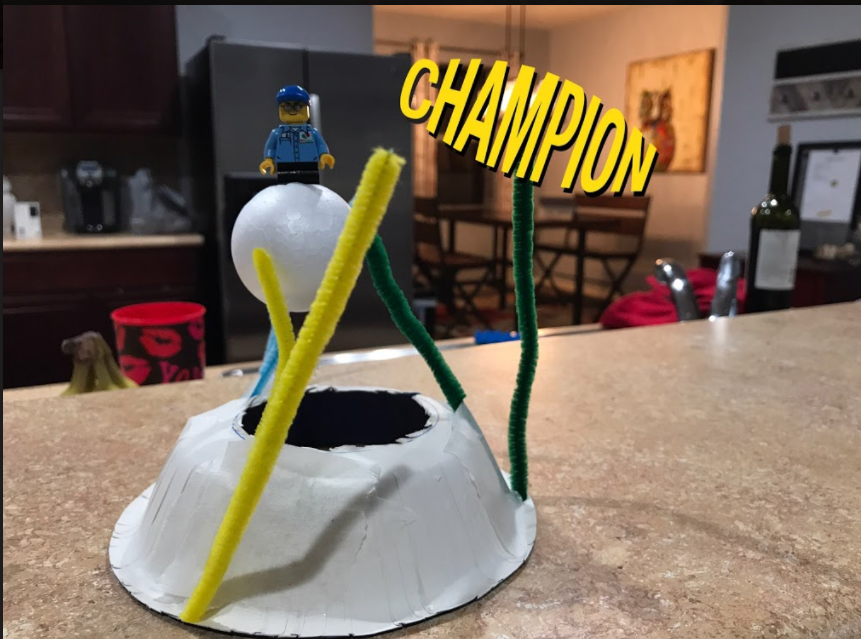
The other ‘construction’ element was the bridge into the lake. Teams would have to account for the height of the ‘lake’ edge and also the engineering design of taking a load as well as the gradient.
These hands on challenges to make, or design and build, are totally engaging and full of rich learning, both in the collaboration skills and the creativity and reflective thinking needed to be successful. The first idea or design is rarely the one that works without refinement.
Coding and Design Thinking
The second element of the challenge required the automation of the Sphero SPRK+ using the Sphero EDU app and the ‘drag and drop’ coding. Teams would need to code the SPRK+ to travel around some markers to avoid the obstacles, travel up the ramp and into the lake to the other side.
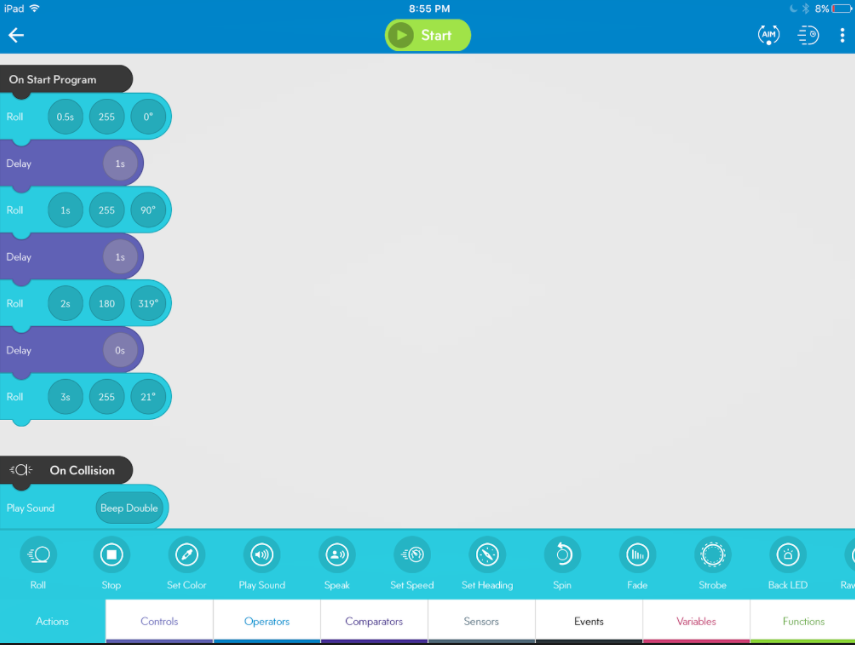
The app involves a series of ‘ribbons’ with coding commands such as ‘roll’, ‘delay’ and so on. Teams, as the design thinking process enables, will design, test, refine and re-design, to create a successful set of code for the challenge.
One of the aspects of coding with the Sphero that we love is that the technical elements of coding are so easy that the computational thinking and problem solving becomes the primary task.
[bctt tweet=”Sphero SPRK+ are a great way to challenge students with a design thinking challenge that involves coding, too! Here’s an easy way to do just that” username=”adifrancis”]
In the classroom, using a tool like Flipgrid, teams could give feedback at certain times during the activity to discuss the learning process.
The use of video could also be used to record the process and allow the students to report back like a journalist discussing the learning that has taken place.
By adding a real world connection, problem solving, collaboration and a hands on activity multiple modern literacies can be addressed, all in the safety of your local paddling pool.
Let us know if you would like one of our STEM Specialists to run an aquatic challenge (as well as other fun STEM challenges) with your staff and students
